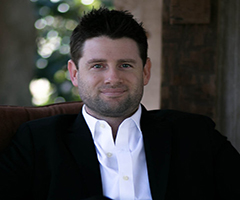Tommy Flynn

For students like Tommy Flynn, the pathway to graduate school is often unexpected. In retrospect, however, many students realize that their graduate journeys began before they ever submitted their applications.
Flynn, now entering his 5th year of studies in Laney’s nursing doctoral program, believes his predoctoral education started the moment he became a registered nurse. “I became a registered nurse to help improve the lives of children. Healthcare should be accessible, affordable, efficient, effective, safe and fair. Kids deserve it, people deserve it. I am here to advocate for them as a nurse.” And for Flynn, advocacy is leading to innovation.
“I came to Laney Graduate School with nothing more than my nursing experience and a belief that healthcare should be better…Working as a nurse in a range of inpatient healthcare settings, including the Emergency Department (ED), I developed a unique perspective of patient care that continues to inform my research.”
Moving from bedside nurse to research scientist was not what I would call a natural transition.
Flynn’s research seeks to discover an effective way to monitor and improve the quality of patient care, specifically in the ED. “Using sensors worn by patients, staff, nurses and providers, we are studying the complex movements and interactions that occur in the ED. Why do some people have to wait longer than others, why does the doctor spend 15 minutes with that patient and 45 seconds with this one? My research will begin to answer questions like these. When we understand the how and why behind ED care, we can build systems to make it more efficient, equitable and safe.”
Aside from being driven by technology, Flynn’s research is also driven by compassion. “I do my best to keep in mind the fact that my dissertation work is part of a learning process, not the end-game,” he says. “I am in it for the long fight. Every patient should receive the same quality of care regardless of social, economic or demographic factors. This research has the potential to bring healthcare closer to realizing that dream.”
The Laney Advantage
In addition to his studies, Flynn credits the Laney Graduate School for helping him to develop into a well-rounded professional. “Laney does more than produce research scientists, it generates motivating teachers, skilled communicators and game-changing leaders. Had it not been for Laney’s teaching program, Professional Development Support Funds, Grant Writing Program, Jones Program in Ethics and Pathways Beyond the Professoriate, my CV would read like a course catalogue. Laney’s programming is crucial. It does the hard work of considering the future and getting doctorates ready for it.”
And what does Flynn imagine for his future? His experience as a nurse lights the way. “My inspiration comes from the countless hospitalized pediatric patients and their families whose stories continue to guide my work,” says Flynn. “I hope to collaborate with creative problem-solvers to find innovative solutions to healthcare’s biggest problems… always with the patient at the center.”